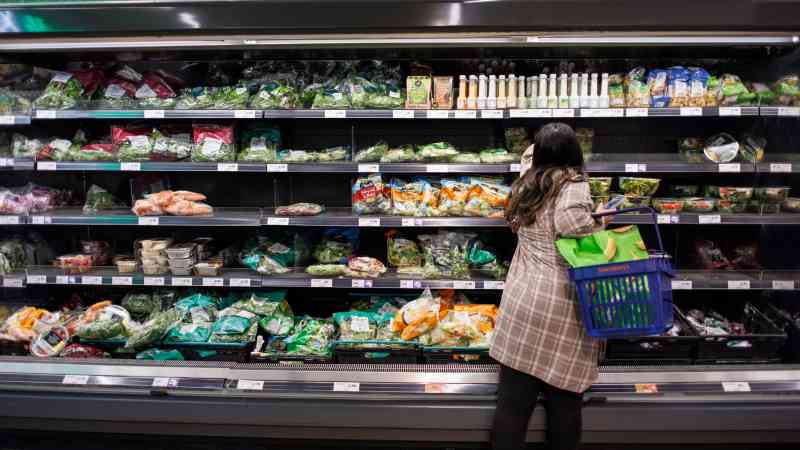Inflation rose for the first time this year in July, jumping back above the Bank of England’s 2 per cent target rate to 2.2 per cent, official figures showed.
The rise was mainly driven by prices of gas and electricity falling by less than a year ago, the Office for National Statistics said. Inflation had remained at the Bank of England’s target of 2 per cent for the past two months.
The rise was weaker than experts had expected, with City analysts anticipating a rate of 2.3 per cent and the Bank of England 2.4 per cent.
Services inflation, which the Bank of England monitors closely, fell sharply to 5.2 per cent from 5.7 per cent, well below the central bank’s forecast of 5.6 per cent. Core inflation decreased to 3.3 per cent from 3.5 per cent.
• Rising inflation won’t affect rate cuts but will hit the poor
The retail price index, an old measure of inflation, climbed to 3.6 per cent last month, potentially pushing up the cost of an annual rail season ticket by the same degree. Governments have typically tied rail fare increases to the July RPI rate, although Labour has yet to confirm if this will continue. Such a rise would lift the price of a season ticket from Reading to London, for instance, by about £200.
The pound dipped against the dollar on the news, weakening by 0.2 per cent to $1.28, before recovering some of those losses. The FTSE 100 increased by 0.56 per cent.
A slower deceleration in energy prices over the last year pushed up the headline inflation rate in July. Oil, gas and electricity prices rose sharply in the wake of Russia’s invasion of Ukraine in February 2022.
Grant Fitzner, chief economist at the Office for National Statistics, said: “Inflation ticked up a little in July as although domestic energy costs fell, they fell by less than a year ago. This was partially offset by hotel costs, which fell in July after strong growth in June.”
Analysts had speculated that Taylor Swift’s Eras tour temporarily pushed up the cost of accommodation in the UK in June.
The jump in inflation represents the first major piece of tricky economic news for Sir Keir Starmer since he became prime minister. He has promised to boost GDP growth and stabilise policymaking after frequent changes to taxes and government spending under the Conservatives.
In new estimates released on Thursday, the ONS is expected to say that the economy expanded by 0.6 per cent over the last three months, down from 0.7 per cent in the first quarter.
• Rising inflation won’t affect rate cuts but will hit the poor
Darren Jones, chief secretary to the Treasury, said: “The new government is under no illusion as to the scale of the challenge we have inherited, with many families still struggling with the cost of living. That is why we are taking the tough decisions now to fix the foundations of our economy so we can rebuild Britain and make every part of the country better off.”
Rachel Reeves, the chancellor, is expected to increase taxes at her first budget on October 30 after outlining £21.9 billion of government overspend.
The inflation rise comes two weeks after the Bank of England cut interest rates by a quarter point to 5 per cent from 5.25 per cent, the first reduction since March 2020.
The Bank is concerned that inflation in the services sector and wage growth across the economy remain too high, potentially keeping inflation above its target over the long run.
Forecasters believe that inflation will stay above the central bank’s target for the remainder of the year thanks to unfavourable comparisons to energy and food prices from last year. However, they also think that the Bank will trim borrowing costs by a further 0.5 points by the end of 2024.
Figures published on Tuesday showed that the rate of unemployment edged down to 4.2 per cent from 4.4 per cent, prompting traders to doubt whether the Bank of England’s monetary policy committee (MPC) would lower borrowing costs at its next meeting on September 19. Wage growth eased to 5.4 per cent, a near two-year low.
Yael Selfin, chief economist at KPMG UK, said: “Despite a modest rise, inflation was relatively subdued in July as weaker core and food price inflation largely offset the diminishing impact of earlier falls in energy prices.”
“This should provide a degree of comfort for MPC members as the Bank’s own forecasts earlier this month pointed to a sharper uptick.”
